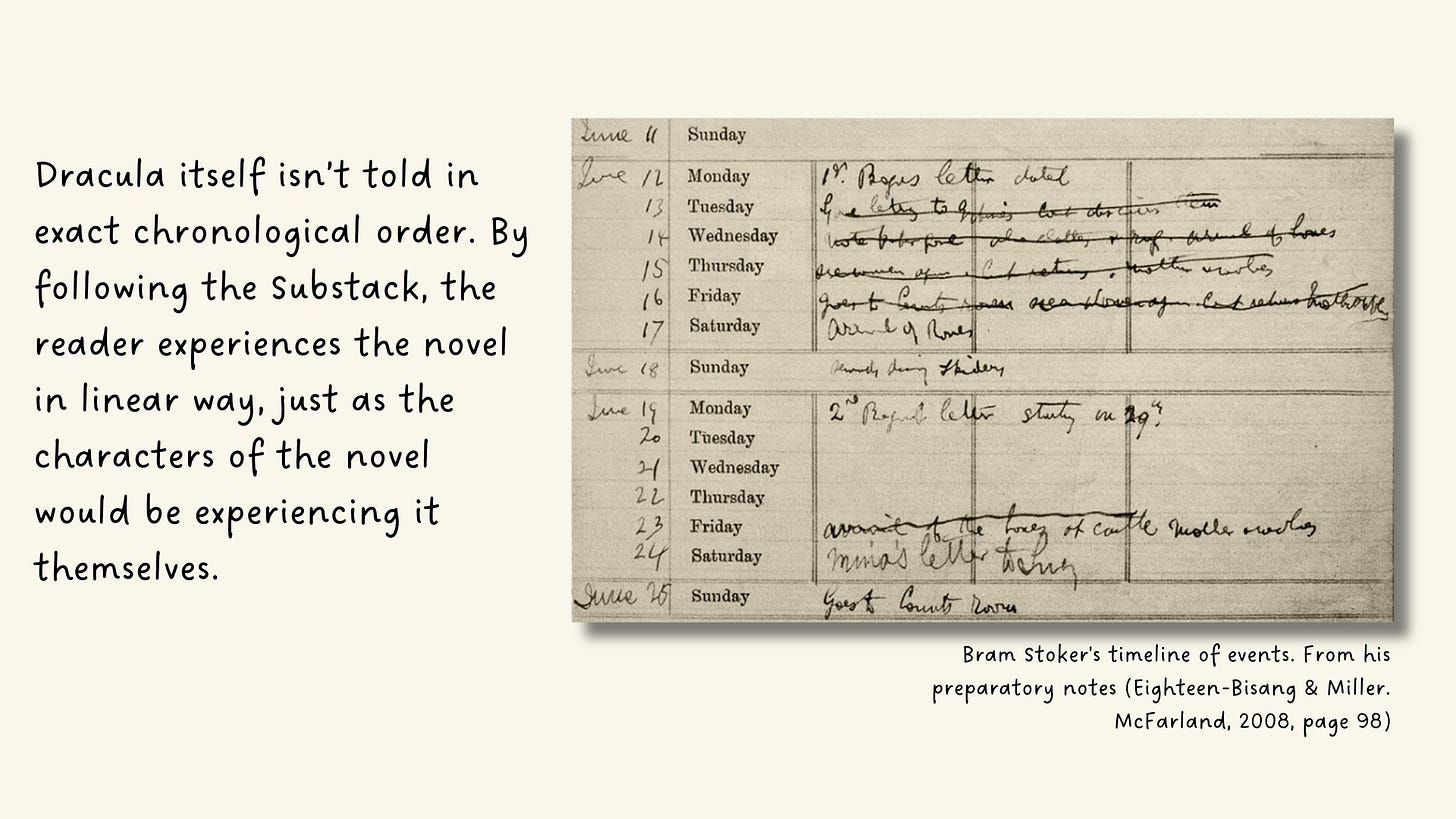👋 Hi there, welcome to The Learning Dispatch! Twice a month, we explore creative formats applicable in the world of learning. Created by TeamLogiQ. Explore some of our past formats:
Think of a classic story that you're generally familiar with but don't actually know.
What about Don Quixote, Moby Dick, or Frankenstein?
Dracula is that kind of story. Everyone knows about it, but not everybody's really read it. But what if you format it differently? That’s what Dracula Daily’s creator, Matt Kirkland, did when he created a serialized version of Bram Stoker's legendary vampire novel. And that’s the format we’re exploring today.
📰 What’s the format?
Dracula Daily. A subscription newsletter that sends Bram Stoker’s 1897 novel Dracula to subscribers via email. The emails contain snippets of the classic horror novel, which takes place over a six-month period, in real time, in the form of the book’s journal entries and letters. Contrary to its name, it does not update daily. Only on the dates which correspond to a part of the book.
🎛️ What are the features?
Delivered in a digestible format.
Has a definite end date
The sequence of the emails enhances an otherwise common reading experience.
💡 Why is it effective for learning?
This format is effective for learning because it’s simple, social, sharable (and the obvious reason): because it’s a great story.
It’s simple because you have one email per day and that’s it. It's a great way to engage with timeless stories that meet you right where you are.
It’s social because everyone is reading the same email on any given day. This synchronicity creates a virtual book-club atmosphere, fostering connections and conversations in online circles.
It’s sharable. In the weeks before the first email goes out, many people share it organically, saying things like: “Hey, I’m going to do this. You should sign up too.” (Actually, that’s exactly why I’m writing this, my cousin shared it with me!)
It’s about the story. By pacing the story according to the book’s sequence, Dracula Daily keeps you hooked, eagerly anticipating the next day's installment.
Note: It’s no surprise that these are the same characteristics we found when we wrote about Wordle and the 100Days Challenges.
💌 An Invitation
How can you take existing material and transform it into a different format?
Hesam, a former startup founder and DJ who now teaches (amazing!) courses at Rice, asked himself: What if online learning wasn’t about taking a course […] joining a platform, and watching videos? He wrote about it in Email-based courses: turning the inbox into a classroom (and even shared his lessons learned from experimenting with this afterward).
Where else can you transform individual, self-paced learning into a collective, engaging experience that fosters community and excitement?
🏷 Summary
Dracula is the same story whether you read it in a physical book or in your inbox in your morning commute. But small things about the experience can make a difference: the thoughts and comments from readers all over the world, the cliffhanger that leaves you waiting till the next day, the internet jokes…
These elements highlight the power of transforming traditional learning formats into engaging, communal experiences. By reimagining how we consume and interact with content, we can make even the most familiar stories feel fresh and exciting.
We value your feedback (suggestions, critiques, positive reinforcement, constructive ideas…) as well as your tips or suggestions for future editions. We’d love to hear about you in the comments.
→ Or just click the heart symbol. That always makes our day.














